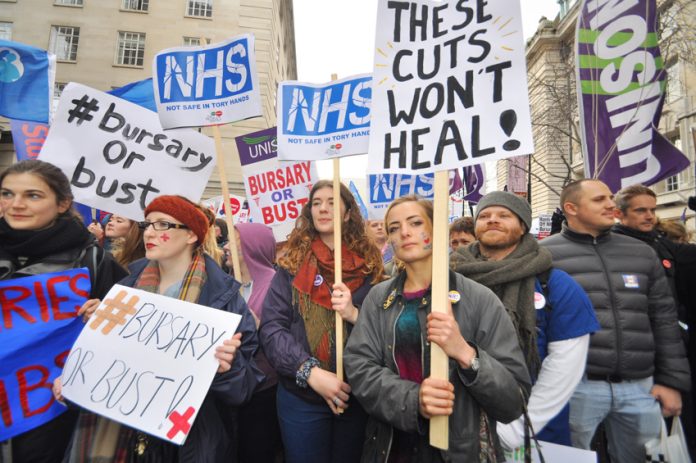SURGEONS have been left ‘kicking their heels’ because thousands of operations have been cancelled as a result of a beds shortage during the winter NHS crisis.
So warn leaders of the Royal College of Surgeons of England (RCS) and NHS Providers, which represents hospital trusts. Surgeons say that delays from cancellations are causing some patients’ conditions to deteriorate to the point that planned operations can no longer remove all their pain or restore the full function of limbs.
In a letter to The Sunday Times, Clare Marx, president of the RCS, and Chris Hopson, chief executive of NHS Providers said: ‘Because of bed shortages, staff including surgeons are now sometimes left kicking their heels, waiting for beds to become available so they can operate.
‘Too often managers, nurses and doctors waste time trying to find somewhere to look after patients (after surgery).
‘At a time when the NHS is being told to make the most of its resources, this is a shocking waste.’
To minimise the risk of infections and delays in getting treatment, hospitals are meant to have no more than 85% of beds occupied.
Marx and Hopson said that overnight inpatient beds were ‘routinely’ 89% occupied. They wrote: ‘This is partly because there is not enough social care capacity to look after our frail older patients in the community, so increasingly they cannot be discharged from hospital.’
The letter follows a statement by the Royal College of Surgeons on Friday, saying: ‘NHS England data published today for October-December 2016 show that the number of cancelled planned operations has further increased. Figures show 21,249 planned operations were cancelled for non-clinical reasons in October-December 2016. This compares to 18,393 planned operations cancelled in October-December 2015.
‘This is a rise of 15.5% in one year even though there has only been a 1% rise in the total number of planned admissions. These are the worst cancelled planned operation figures for October-December since 2004/05.’
Commenting on the rise in cancelled planned operations, RCS President Clare Marx said: ‘There are no new ways of describing the relentless pressures on NHS services, staff and the patients we serve. Cancelling operations for non-clinical reasons means patients wait longer, causing stress for them and their families. In some cases we know patients deteriorate or develop complications and their outcomes are often worse the longer they wait for treatment.
‘Last minute cancellations are just the tip of the iceberg. Many more patients are cancelled in the days before their operation is due. It is heart-breaking for patients to psychologically prepare themselves for an operation, only to be told that it can’t go ahead.
‘Often it is because there are no free beds either due to increased emergency admissions or slow discharge of patients who are fit to leave hospital but have no community care or home support to go to.’
